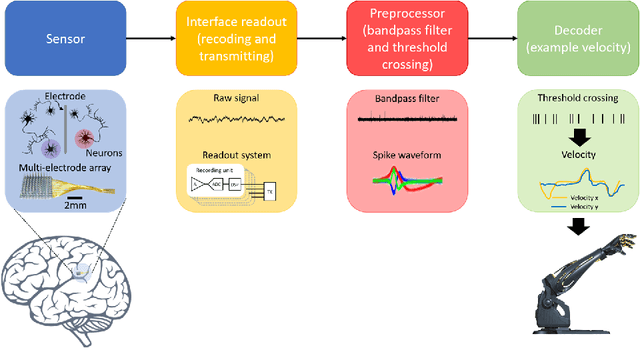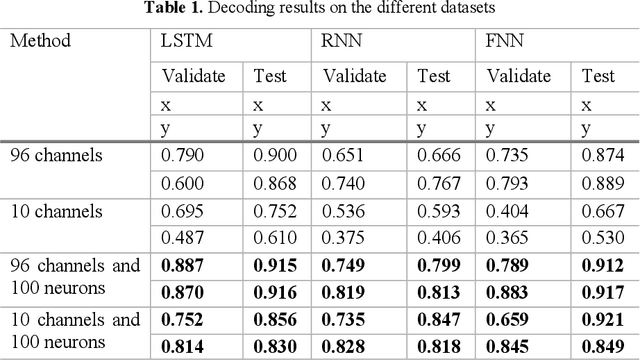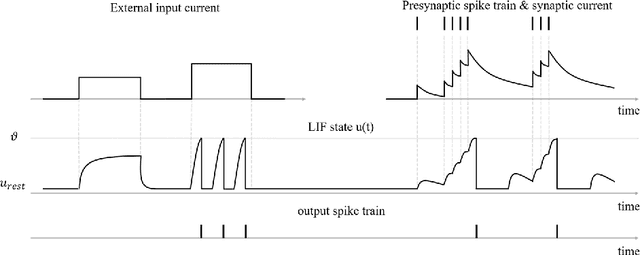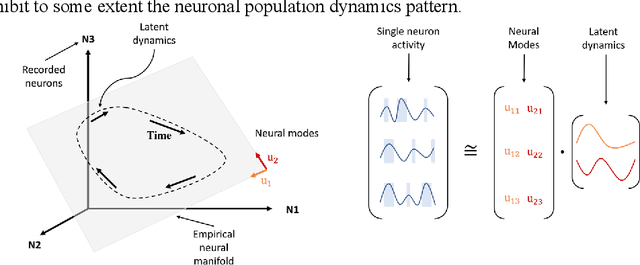A Spiking Neural Network based on Neural Manifold for Augmenting Intracortical Brain-Computer Interface Data
Paper and Code
Mar 26, 2022



Brain-computer interfaces (BCIs), transform neural signals in the brain into in-structions to control external devices. However, obtaining sufficient training data is difficult as well as limited. With the advent of advanced machine learning methods, the capability of brain-computer interfaces has been enhanced like never before, however, these methods require a large amount of data for training and thus require data augmentation of the limited data available. Here, we use spiking neural networks (SNN) as data generators. It is touted as the next-generation neu-ral network and is considered as one of the algorithms oriented to general artifi-cial intelligence because it borrows the neural information processing from bio-logical neurons. We use the SNN to generate neural spike information that is bio-interpretable and conforms to the intrinsic patterns in the original neural data. Ex-periments show that the model can directly synthesize new spike trains, which in turn improves the generalization ability of the BCI decoder. Both the input and output of the spiking neural model are spike information, which is a brain-inspired intelligence approach that can be better integrated with BCI in the future.
 Add to Chrome
Add to Chrome Add to Firefox
Add to Firefox Add to Edge
Add to Edge